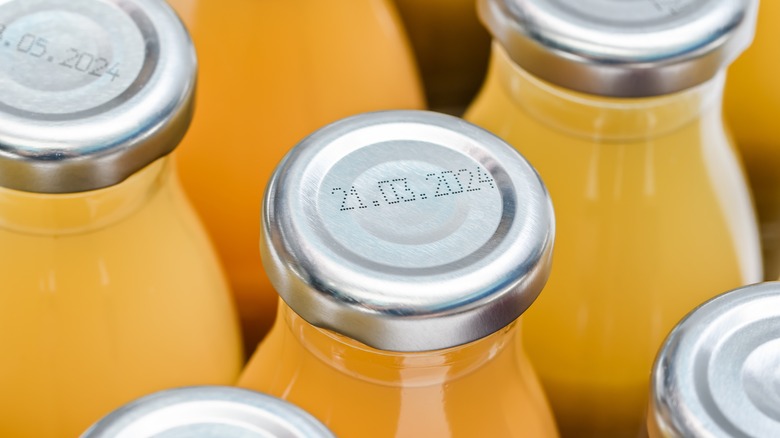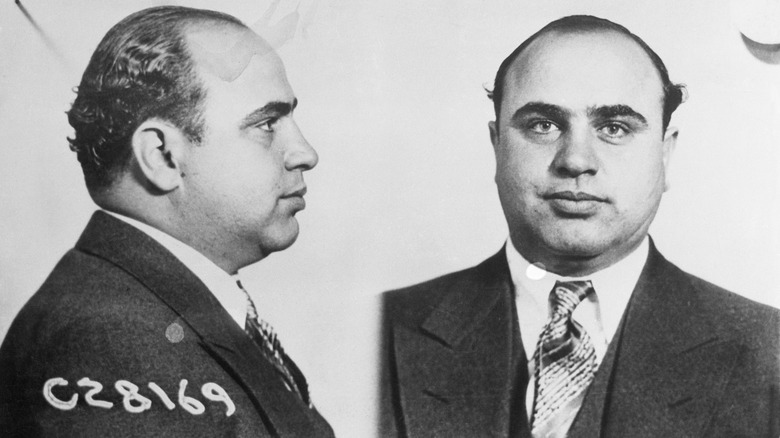Is Al Capone Really The Reason We Have Expiration Dates?
Before tossing milk in the shopping cart, modern grocery shoppers habitually twirl the bottle in search of an expiration or "best-by" date, but how precise are those printed numbers? Apparently, not precise at all. The accuracy of "sell by" dates has been up for debate for ages now, as there is no true way to determine when one particular product will go bad. Farmers and producers are really only able to make an educated guess, and yet, we still see one daunting date stamped on all packaged goods. There's some mystery as to how this regulation came into play but rumors suggest the decision had a strong influence from a certain infamous Italian-American.
During the prohibition era, Al Capone was in control of nearly everything in Chicago, including the dairy industry. When he wasn't shilling prohibition bathtub gin, the notorious mobster was unexpectedly a leading force in lobbying for food expiration dates after his niece allegedly got sick at the hands of some spoiled milk. His intentions were pure, supposedly intended to protect children and pregnant women in particular from harmful rotten foods. Capone made his opinion known and let's just say, he was the last person anyone wanted to anger in the Windy City.
Capone may have instilled a bit of fear in Chicago's City Council
The story of Al Capone's advocacy work may come from a story relayed by a park ranger at the shuttered Alcatraz prison. Determined to get his way, Capone was not shy about his agenda. He went as far as purchasing a milk processor, Meadowmoor Dairies, to help influence the Chicago City Council to implement milk expiration dates. It wasn't until the wave of processed foods in the 1970s that expiration dates became mainstream, decades after Capone's death, but it's hard to believe his intimidation tactics didn't have something to do with the push.
Linguistics matter, especially when it comes to health information. It may have gone largely unnoticed, but expiration semantics changed from "sell-by" and "use-by" to "best if used by" on many food products sometime around early 2017. This shift was in response to the U.S. Department of Agriculture, which practically begged producers to adjust their language in an effort to limit food waste. We now know there's no magic formula to determine a milk bottle's fate, but this was well before the government established its pasteurization rules so chances of getting sick were much higher. Aside from a few exceptions like medicine and baby formula, the F.D.A confirms today's product dates are only to inform customers of peak quality, not safety.

